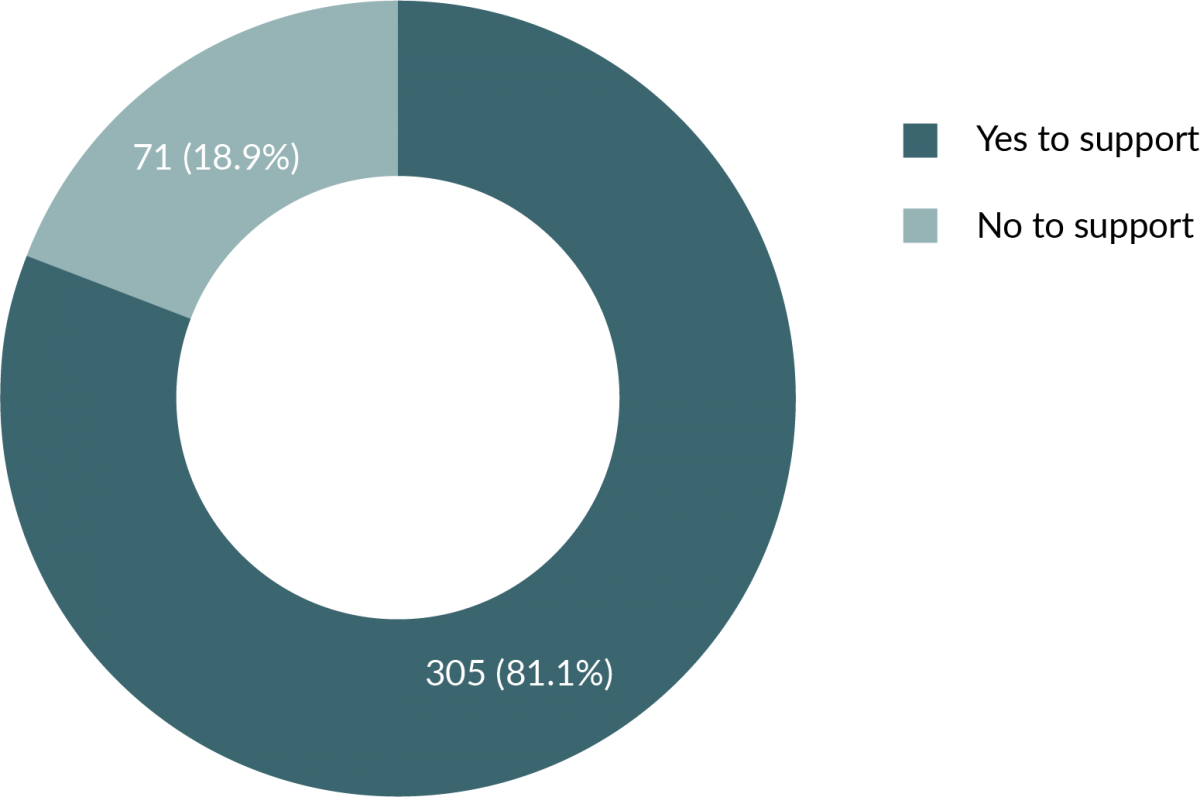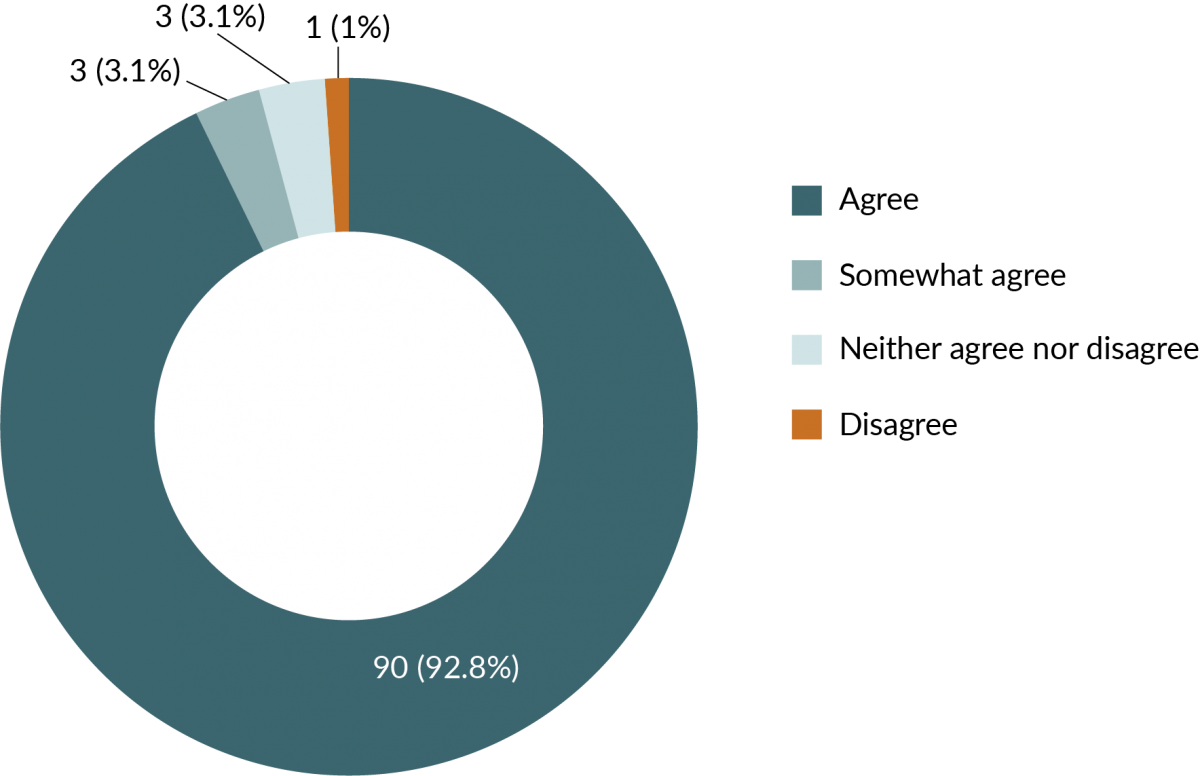2.1 The Truth Project
The Inquiry’s Terms of Reference[1] require it to:
consider the experience of survivors of child sexual abuse; providing opportunities for them to bear witness to the Inquiry, having regard to the need to provide appropriate support in doing so.
The Inquiry set up the Truth Project as one of the ways of fulfilling this obligation. It provides victims and survivors of child sexual abuse with an opportunity to disclose the abuse they suffered and contribute to the Inquiry’s work. The Truth Project is open to any victim or survivor of child sexual abuse who has been let down by an institution in England and Wales. Initiatives like the Truth Project have been established before ‒ for example, they made an important contribution to the inquiries into child sexual abuse in Australia[2] and Northern Ireland[3].
Victims and survivors can choose how they tell the Inquiry about the sexual abuse they suffered (for example, in person or remotely). Most have decided to attend a private session in person, while others have submitted a written account. Regardless of the approach they take, it is up to each individual to decide what to tell the Inquiry. They are not questioned or challenged and the information they provide is not verified or tested.
Where victims and survivors have agreed that their accounts can be used by the Inquiry for research purposes, the Inquiry analyses them for themes and patterns to both shape its work and inform its conclusions and recommendations.
In order to ensure that the Inquiry is able to keep victims and survivors’ information confidential, it has a Restriction Order in place to protect the anonymity of those who engage with the Truth Project and the experiences they share. While the Inquiry keeps this information confidential, its Terms of Reference require it to refer all allegations of child abuse to the police. Other than in those circumstances, victims and survivors’ information will not be disclosed unless we are ordered by a court to do so.
Victims and survivors who have participated in the Truth Project
-
1,040 accounts of child sexual abuse have been shared with the Truth Project so far
-
787 private sessions have been held
-
253 written accounts have been received
520 victims and survivors consented to the information they provided being used for research purposes in the period June 2016 to December 2017:
-
53% of participants were female, 46% were male and 1% identified as ‘other’
-
The average participant was 52 years old ‒ the youngest participant was 21 and the oldest was 95
-
94% were sexually abused by men
-
Approximately six in ten said they were first abused when they were 4-11 years old (61%) and around a quarter when they were 12-15 years old (24%)
-
Over one third (36%) reported multiple episodes of abuse (involving more than one perpetrator or institution)
The Inquiry takes a trauma-informed approach to its work. For the Truth Project, this means that the Inquiry works with each victim and survivor before their private session to:
-
make sure they understand what to expect so that they can make an informed decision about whether participating in the Truth Project is right for them
-
provide emotional support and help to ensure that they feel safe throughout the process
-
make the experience on the day supportive ‒ many decide to bring someone with them
-
ensure that emotional support and counselling are available on the day (the Inquiry also contacts victims and survivors after their session to ask how they feel, to check on their welfare and to explain how they can access support in their local area), and
-
ask whether they would like the information they provide to the Inquiry to feed into its other work, including research and the development of recommendations for change.
Chart 1 Uptake of emotional support and counselling by Truth Project participants (June 2017 ‒ January 2018)

Long Description
| Number of Participants | Number of participants as a percentage | |
|---|---|---|
| Yes to Support | 305 | 81.1% |
| No to Support | 71 | 18.9% |
Chart 2 Feedback by Truth Project participants on whether emotional support and counselling were helpful (June 2017 ‒ January 2018)

Long Description
| Number of Participants | Number of participants as a percentage | |
|---|---|---|
| Agree | 90 | 92.8% |
| Somewhat agree | 3 | 3.1% |
| Neither agree nor disagree | 3 | 3.1% |
| Disagree | 1 | 1% |
After their session, victims and survivors are given the opportunity to leave a few words with the Inquiry about their participation in the Truth Project, or points or issues that they want to highlight to the Inquiry. These are known as ‘Have your say’ messages and a number of these have been included in this report.
Victims and survivors’ feedback on the Truth Project
The support given to help me feel comfortable and in control was outstanding: nothing was too much trouble and my welfare was paramount at all times. I felt listened to, heard and my opinions and story valued at times. I actually learnt things about myself too. This was a meaningful process and I am so glad I did it.
Victim and survivor, the Truth Project (‘Have your say’)
Best thing I have done. Gave me a voice and allowed me to tell about my experience in a very safe understanding environment. Trust in the process ‒ there is nothing to fear. You WILL be believed and your story matters. No lessons can be learnt if we don't tell them where it went wrong.
Victim and survivor, the Truth Project (‘Have your say’)
I was anxious about telling an institution about my institutional abuse, but afterwards I was relieved to have told an institution since this one had actually listened.
Victim and survivor, the Truth Project (‘Have your say’)
Since my meeting with IICSA it was a heavy burden taken off my shoulders. The people there were kind and patient and I felt that at last someone is actually believing in what I endured. After my meeting I felt fine but a day later I became very tearful and felt I had lost my strength to carry on facing people, wondering was it worth it unloading my past to strangers and what good will come out of it. Five days later I realised I had done the right thing. Sharing my experiences would help other children.
Victim and survivor, the Truth Project (‘Have your say’)
The Inquiry publishes a range of reports about the Truth Project. So far it has published an anonymised summary of personal accounts of child sexual abuse to help raise awareness of the subject and its effects[4]. It has also published a report[5] and video[6] on the first analysis of Truth Project data to illustrate the scale, scope and nature of child sexual abuse as told by Truth Project participants.
Chapter 3 of this report sets out what the Inquiry has learned about child sexual abuse and its effects on victims and survivors.